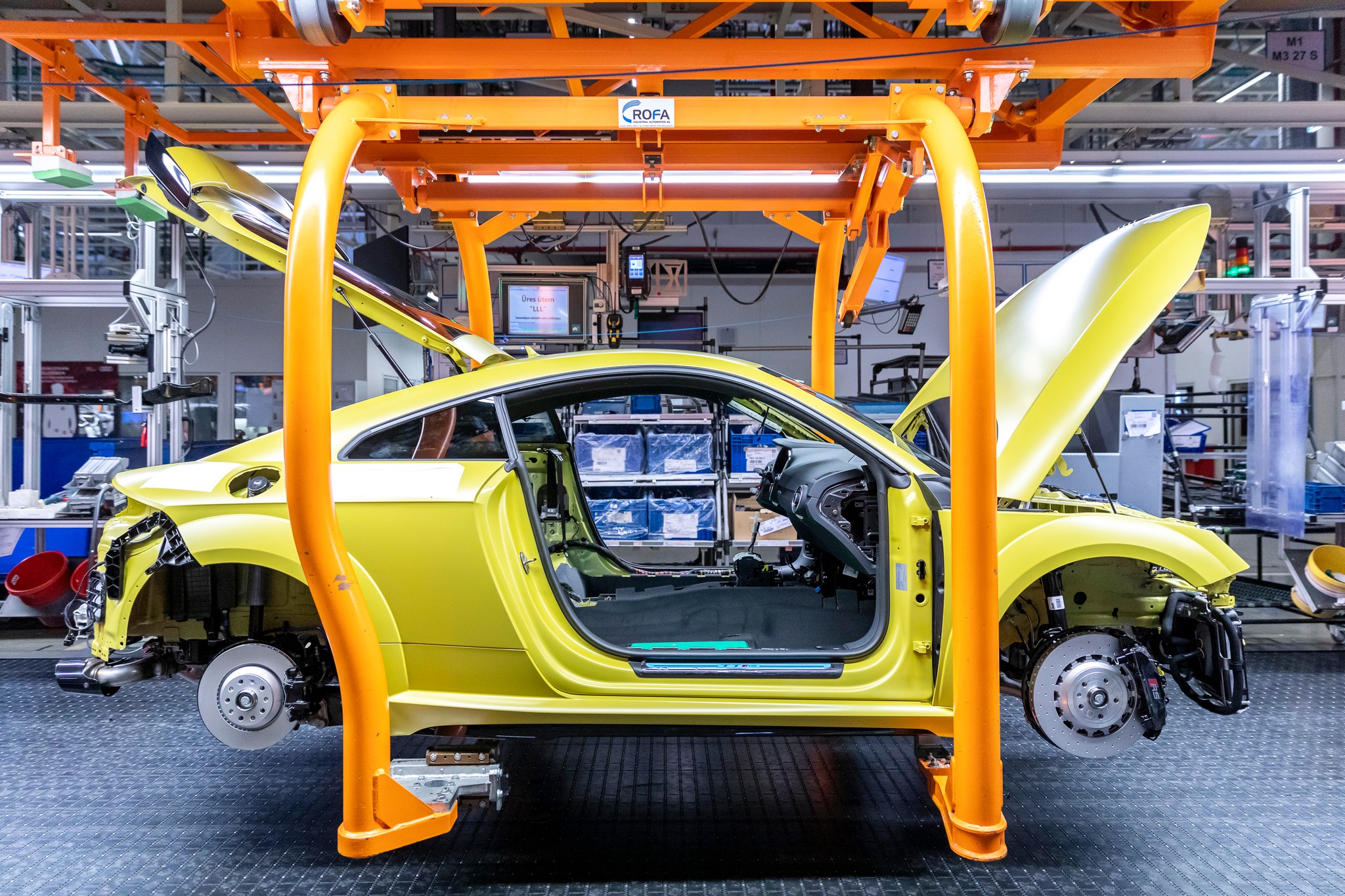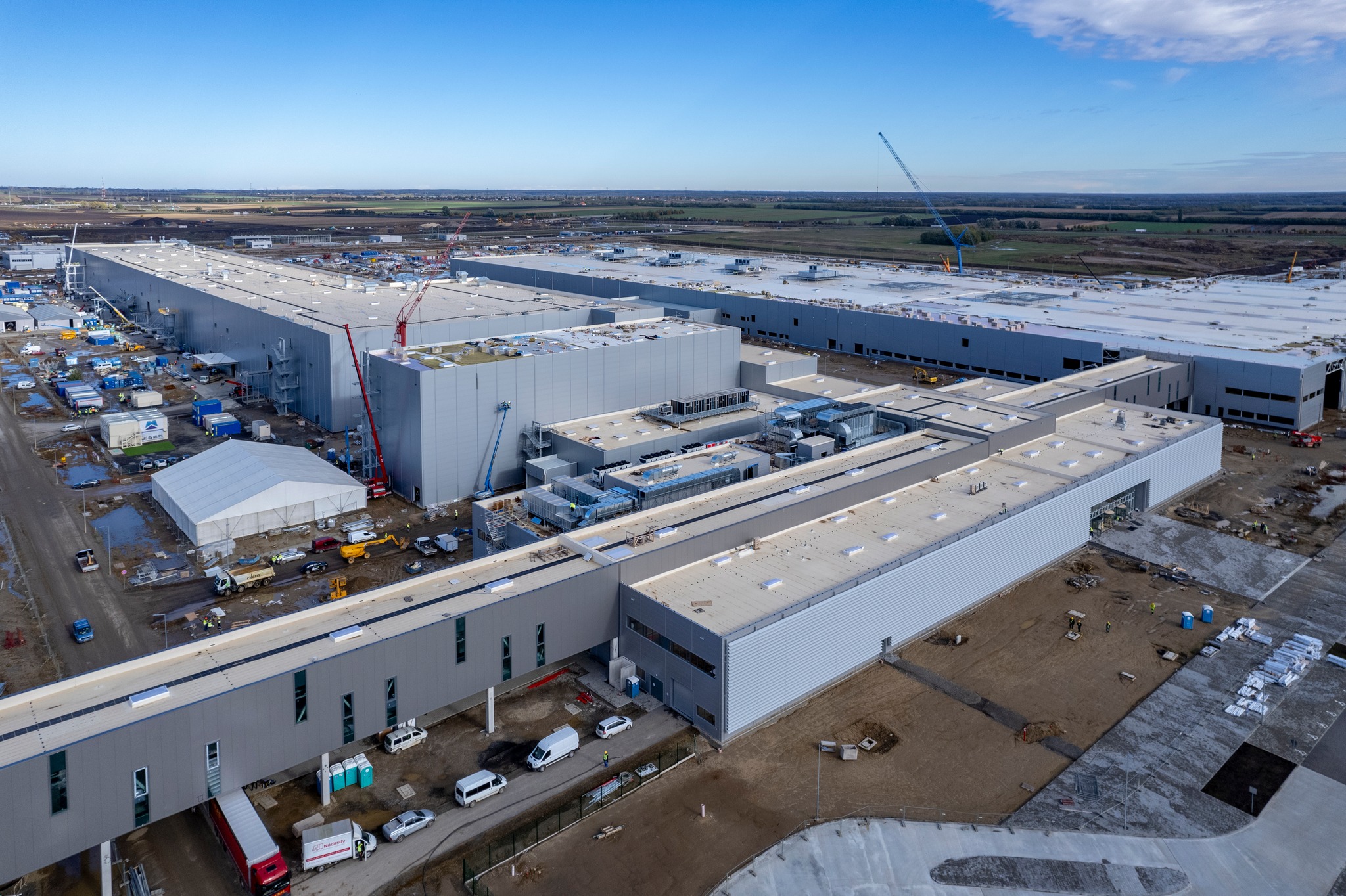The Foreign Minister highlighted the deep interconnection between the Hungarian and German economies.Continue reading

The latest business figures are devastating: sales are falling, the transition to electric cars is delayed, while China is “pushing”, Infostart pointed out. The German car industry is currently battling on multiple fronts, potentially affecting Hungarian plants as well.
Besides Germany and China, Hungary is the only country in the world where all three German premium car manufacturers (Audi, BMW and Mercedes-Benz) are present. It is therefore not surprising that the recent crisis the German industry’s challenges are also relevant in Hungary.
A report in the German business daily Wirtschaftswoche suggests that the German automotive industry’s difficult situation, despite the data, is not entirely hopeless. The sector had a turnover of around EUR 558 billion in 2023, retaining its ‘throne’. However, the area undeniably faces a number of challenges, with the sector “creaking and crackling” in several aspects, as the paper puts it.
Helena Wiesberg, director of the Center for Automotive Research (CAR), notes that
manufacturers are are “deep in transformation”, while international markets are currently not moving in a positive direction.
As the portal writes, the engine of the German economy is its highly specialized gearbox, however, this is a discontinued model. In addition, as already mentioned on several occasions, the future of the automotive industry is the electric transition. Therefore, some German carmakers had announced an “electric only” strategy a few years ago, but some of these plans have been cancelled.
Among the large German car brands, the Volkswagen Group (VW) continues to focus on cost reduction. Last year, it had 684,000 employees and a turnover of EUR 322 billion. According to Wirtschaftswoche, only VW is able to produce such figures in Germany. However, sales of 136,000 electric vehicles in the first quarter of this year fell short of expectations. Unlike Mercedes, VW targets the broader volume market rather than the luxury car market. The company intends to continue reducing costs in the future, including material, product, and labor costs, even for senior management.
According to the newspaper, BMW is in a better position. The company’s sales rose by 2.3 percent in the first half of 2023, reaching 1.1 million units. This has once again placed it ahead of its direct competitors Mercedes and Audi.
Sales of electric vehicles also increased by 34 percent, reaching nearly 180,000 cars.
BMW sold more electric cars than Mercedes and Audi combined. However, like other carmakers, BMW has been affected by the price war with China, with sales there falling by 4.7 percent in the second quarter compared with the first quarter.

BMW‘s factory under construction in Debrecen, eastern Hungary. Photo via Facebook/BMW Group Gyár Debrecen
Handelsblatt also published a similar report. Based on the newspaper, the pursuit of record profits is over for Volkswagen, BMW, and Mercedes. All three companies reported shrinking revenues in the first half of this year compared with the same period last year.
The crisis in the German car industry was also reported by the news portal pnp.de. The article highlights that there has been an increase in bad news about German carmakers and their suppliers recently. Sales are down, profits are falling, and job cuts are continuing.
Due to weak demand for electric cars, Volkswagen has cut back production in Wolfsburg, Emden, Zwickau, and, in the case of Audi, Ingolstadt and Neckarsulm.
BMW also reported declining sales and profits. However, unlike its competitors, it has maintained its forecasts for this year and is more optimistic about its electric car production, with research and development spending increasing significantly.
Electric cars equipped with new batteries and software are scheduled to roll off the production lines in Munich and Debrecen, Hungary, from the end of next year.
Via Wirtschaftswoche, Infostart; Featured image via Facebook/Audi Hungária Győr